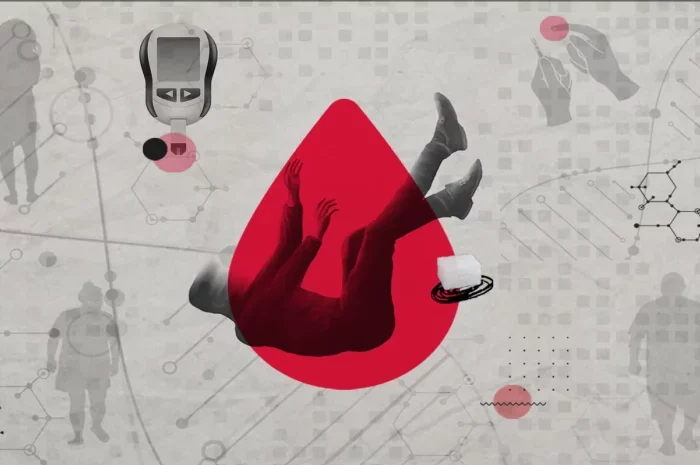Hypoglycemia, defined as a lower than normal level of blood glucose, is a significant concern in the neonatal period. Newborns, particularly those at risk, require careful monitoring and prompt intervention to prevent potential long-term complications. This article delves into the signs of hypoglycemia in newborns, providing comprehensive insights for healthcare professionals and caregivers to ensure early detection and appropriate management.
Causes and Risk Factors
Various factors can predispose newborns to hypoglycemia, including:
Maternal Diabetes: Infants born to mothers with diabetes are at higher risk due to hyperinsulinemia induced by maternal hyperglycemia.
Preterm Birth: Preterm infants have immature glucose regulatory mechanisms and lower glycogen stores.
Small for Gestational Age (SGA): These infants often have depleted glycogen stores and reduced gluconeogenic capacity.
Large for Gestational Age (LGA): Similar to infants of diabetic mothers, these infants are at risk due to hyperinsulinemia.
Perinatal Stress: Birth asphyxia, sepsis, or other stressors can deplete glycogen stores rapidly.
Endocrine Disorders: Congenital adrenal hyperplasia, hypopituitarism, or other hormonal imbalances can impair glucose regulation.
Physiological Mechanisms
Glucose is a vital energy source for the brain, and newborns transition from a constant supply via the placenta to intermittent feeding post-birth. This transition involves complex metabolic adaptations:
Glycogenolysis: Breakdown of glycogen stored in the liver.
Gluconeogenesis: Production of glucose from non-carbohydrate sources.
Lipolysis and Ketogenesis: Breakdown of fats into fatty acids and ketones, respectively.
Failure in these mechanisms, due to the reasons mentioned above, can lead to hypoglycemia.
Signs and Symptoms of Hypoglycemia in Newborns
Recognizing the signs of hypoglycemia in newborns is crucial for timely intervention. Symptoms can be subtle and nonspecific, often overlapping with other neonatal conditions. Key signs include:
Jitteriness or Tremors: One of the most common initial signs, jitteriness, may be mistaken for normal neonatal movements but should be evaluated carefully.
Poor Feeding: Difficulty in establishing feeding, lethargy during feeds, or refusal to feed can indicate low blood glucose levels.
Hypotonia: Decreased muscle tone and limpness are concerning signs of hypoglycemia.
Lethargy: Excessive sleepiness and reduced activity levels can be indicative of hypoglycemia.
Apnea or Tachypnea: Episodes of stopped breathing or rapid breathing may be signs of metabolic distress.
Cyanosis or Pallor: Blue or pale skin can indicate poor oxygenation, often secondary to hypoglycemia.
Hypothermia: Low body temperature, even in a warm environment, can be a sign of hypoglycemia.
Seizures: Severe hypoglycemia can lead to convulsions, which are a medical emergency.
High-Pitched Cry: An unusual, shrill cry can be a subtle indicator of distress due to hypoglycemia.
Diagnostic Evaluation
The gold standard for diagnosing neonatal hypoglycemia is measuring blood glucose levels. Regular monitoring is essential for at-risk infants:
Blood Glucose Monitoring: Capillary blood glucose testing using heel stick samples is commonly performed. Continuous glucose monitoring (CGM) devices are emerging tools that provide real-time data and trends.
Laboratory Tests: In certain cases, venous blood samples may be needed for accurate measurement and to check other metabolic parameters.
Clinical Observation: Continuous clinical assessment is vital. Observing feeding behavior, activity levels, and other signs can guide the need for further testing.
Management of Neonatal Hypoglycemia
Prompt treatment of hypoglycemia is crucial to prevent potential neurodevelopmental impairment. The management approach involves:
Early Feeding: Encouraging early and frequent breastfeeding or formula feeding helps maintain glucose levels.
Glucose Gel: Buccal administration of dextrose gel can rapidly elevate blood glucose levels in symptomatic newborns.
Intravenous Glucose: For severe or refractory cases, intravenous glucose infusion is necessary. The concentration and rate are adjusted based on the infant’s glucose levels and response to treatment.
Monitoring: Continuous or frequent blood glucose monitoring is essential to ensure stability and guide ongoing treatment.
Treat Underlying Causes: Identifying and managing underlying conditions, such as sepsis or endocrine disorders, is crucial for preventing recurrent hypoglycemia.
Long-term Outcomes
The potential long-term effects of neonatal hypoglycemia depend on the severity, duration, and promptness of treatment. Untreated or prolonged hypoglycemia can lead to:
Neurodevelopmental Impairment: Cognitive deficits, motor delays, and learning disabilities.
Seizures: Persistent hypoglycemia can cause seizures, which may have lasting impacts.
Growth Retardation: Chronic metabolic instability can affect overall growth and development.
Prevention Strategies
Preventing neonatal hypoglycemia involves addressing risk factors and implementing proactive measures:
Maternal Health: Optimizing maternal glucose control in diabetic pregnancies can reduce the risk of neonatal hypoglycemia.
Delivery Planning: Timing of delivery, particularly in high-risk pregnancies, can influence the risk. Ensuring readiness for immediate glucose monitoring and intervention is essential.
Breastfeeding Support: Promoting and supporting early and exclusive breastfeeding helps stabilize blood glucose levels.
Education: Educating parents and caregivers about the signs of hypoglycemia and the importance of early feeding can aid in early detection and intervention.
Case Study: Managing Neonatal Hypoglycemia
A practical case study can illustrate the complexities and nuances of managing neonatal hypoglycemia:
Case Study: Infant of a Diabetic Mother
Background: A full-term male infant, born to a mother with poorly controlled gestational diabetes, presented with jitteriness and poor feeding at 2 hours of age.
Initial Assessment:
- Blood Glucose Level: 35 mg/dL (1.9 mmol/L).
- Clinical Signs: Jitteriness, lethargy, and hypotonia.
Management:
Immediate Feeding: Encouraged breastfeeding, but the infant was too lethargic.
Dextrose Gel: Administered buccal dextrose gel with some improvement in feeding behavior.
IV Glucose: Initiated a 10% dextrose infusion due to persistent low glucose levels.
Monitoring: Continuous glucose monitoring was employed to track trends.
Outcome:
- Stabilization: Blood glucose levels stabilized within 12 hours with IV glucose support.
- Follow-Up: Regular follow-up ensured no recurrent hypoglycemia and normal developmental milestones.
Discussion: This case underscores the importance of early recognition, prompt treatment, and continuous monitoring in managing neonatal hypoglycemia, particularly in high-risk infants.
Research and Future Directions
Ongoing research is crucial to improving the understanding and management of neonatal hypoglycemia. Areas of interest include:
Continuous Glucose Monitoring: The role of CGM in providing real-time data and reducing the need for frequent blood sampling.
Biomarkers: Identifying biomarkers for early detection and risk stratification.
Neuroprotective Strategies: Investigating interventions that can protect the brain during hypoglycemic episodes.
Longitudinal Studies: Assessing long-term outcomes to refine treatment protocols and preventive measures.
Conclusion
Neonatal hypoglycemia is a common yet critical condition that requires vigilant monitoring, prompt intervention, and a comprehensive understanding of risk factors and symptoms. Early detection and appropriate management are essential to prevent adverse outcomes and ensure optimal growth and development in newborns. Healthcare professionals, equipped with knowledge and resources, play a vital role in safeguarding the health and future of these vulnerable infants. Through continued research and education, advancements in the care of neonatal hypoglycemia will enhance outcomes and quality of life for affected newborns.
Related topics:


























